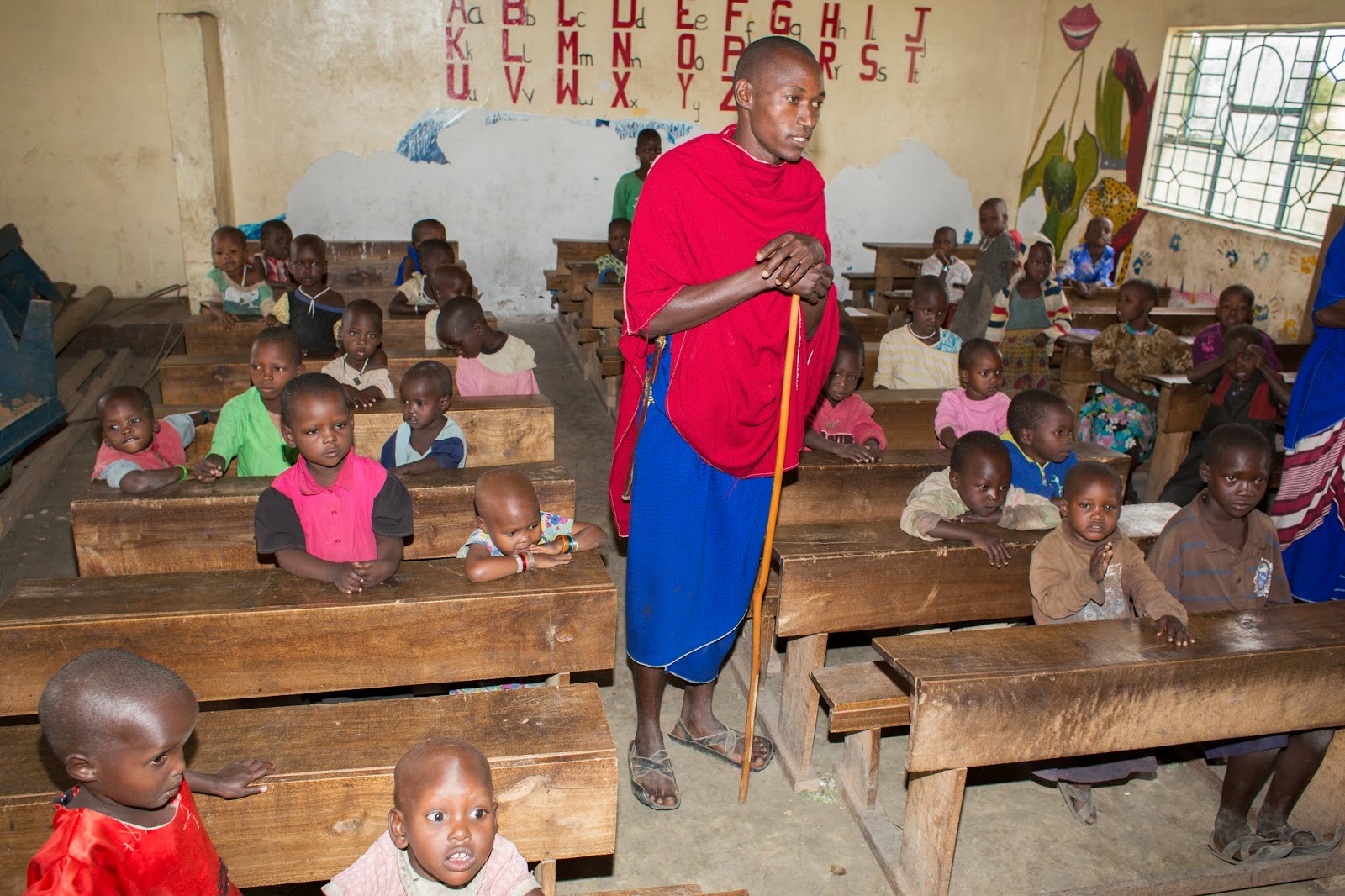May 26, 2014
Visiting schools
We continued our immersion in Tanzanian culture by visiting the primary school in the village of Iraqu. This school serves the surrounding community (primarily Iraqu) for K-7 grade. In Tanzania, mandatory education goes only through the 7th grade. At that time, testing is used to determine who may continue to secondary school. But all those who qualify must pay tuition, in both private and government-run schools.
We started the day by meeting the heads of the school and presenting them with the supplies we gathered and brought, including about 80 composition notebooks and 6 used laptop computers:
The school masters told us about the schools, its curriculum, and the students.
We then visited a 7th grade class. They sang some songs for us, and then we asked each other questions (they were curious about how we traveled to Tanzania, and if we had any pets):
The class then ran outside and gathered beneath a tree to perform some songs and dances for us:
We had prepared a response, so we all gathered in a circle and participated in a rousing rendition of the hokey pokey. Video to follow!
We all mingled for a while, posing for photos, which the kids seemed to really enjoy:
We then played soccer together, which was a blast. We managed to avoid embarrassing ourselves, despite the 6500' elevation:
We mingled for a while more, taking lots of photos and sharing high-fives. The children seemed especially interested in long blond hair, which they spent some time braiding:
We drove out of Karatu and to Esilalei, a Maasai village near Arusha that maintains a relationship with Maasai Wanderings, the tour company that guided our trip. Esilalei is a typical Maasai village consisting of several clusters of homes, each of which houses an extended family. We began by visiting the one room kindergarten, a modest facility that saves the children a nearly 10 mile walk to the next nearest school. We presented the head teacher with a box filled with school supplies that he had requested (pencils, chalk, notebooks, etc.):
We then visited the children in their school room. They all seemed interested in touching and shaking hands with us. They clapped and sang a song for us, and loved having their photos taken (especially if they could view themselves on the back of the camera):
Our local guide walked us over to part of the village as he told us of life in the village. The women gathered to sing songs for us, pulling up most of the women in our group, who were decorated and then lead in a dance. Children played around the edges and watched and laughed.
The women set out beaded jewelry that they had crafted. We shopped for a while (with our guide acting as chief negotiator and money collector).
Although everyone seemed happy, many of the students were disturbed by the conditions within the village. It was certainly very dirty by our standards, with many swarming flies. Several students mentioned how disturbing they found it to see flies crawling over the faces and heads of the children. This was certainly an opportunity to step well outside of our usual Western experience, and while we tried hard not to judge anyone, or make value judgments as to their way of life, several students reported feelings of sadness and great discomfort while seeing how they lived. It certainly gave us an appreciation for the luck of birth that placed us within our present circumstances. I am certain that their lifestyle offers many advantages over our own (a greater commitment to and time spent with family and community, for example) but it is hard for us to look beyond what seems to us to be obvious discomforts of their lifestyle.
We gathered for more photos, thanked our hosts heartily, and returned to our trucks:
From Elilalei, we returned to Ahadi Lodge in Arusha for a "day spa" visit. We were able to repack, shower, relax, enjoy some conversation, and then eat a fine dinner before heading off to the airport for our long journey home.
As always, thank you for reading!



























No comments:
Post a Comment